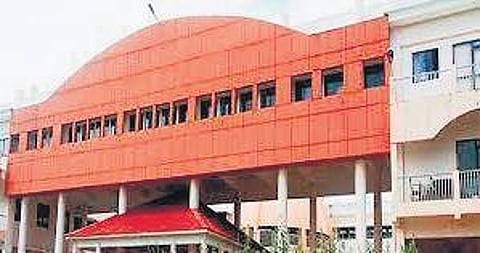

THIRUVANANTHAPURAM: APJ Abdul Kalam Technological University (KTU) will completely overhaul the conduct, structure, content, and evaluation of its MTech courses to focus on developing a knowledge community. The Board of Governors of the varsity approved the recommendations put forward by the Academic Council and the Syndicate in this regard.
Currently, 10 regional clusters are offering over 100 diversified MTech Courses. The cluster-level graduate committees, led by the lead college in each cluster, are in charge of syllabus formulation, examination, and evaluation of courses in the respective clusters.
From the 2022-2023 academic year, the Board of Governors has proposed to create a unified system of conducting MTech courses, eliminating the existing cluster structure and placing MTech courses under the direct authority of the university.
All associated colleges of the university will have a single framework for MTech programmes. Only the first two semesters of the two-year course will be taught in classrooms. MOOC courses, industry-related internships, and projects will be the focus of the second year.
After two semesters, students will choose from two tracks for continuing their second year. Those who choose the first track will receive a regular MTech degree, while those who opt for the second track can pursue higher education, research, and entrepreneurship.
The second track is only open to individuals who received an 8.5 cumulative grade in the first semester and a Gate score. They are also required to publish a journal in the third semester. The 123 MTech courses will be divided into 75 groups. Each group will have its core and elective topics in addition to the main topics relevant to each MTech course.
Of a total of 68 credits, students are required to acquire 18 credits each in the first two semesters and 16 credits each for the last two. Students can enroll in the third semester only if they earned at least 12 credits in the first semester.
Content
The courses are designed to focus on three areas -- industry, research and entrepreneurship. The syllabus will include project-based practical studies and industry visits, experiential studies, studies based on data published in international journals, compulsory industry-related internships, mini-projects, and industry-related elective topics. Skill development training will also be made mandatory to flourish in areas such as business analytics, industrial safety, operations research, engineering project cost management, and intellectual property.
Evaluation
Evaluation will be based on three criteria -- practicality, analytics, and design. In addition to the exams conducted at the end of the semesters, the evaluation method will be employed to assess the individual performance of each student.
University examinations will be held for core subjects that require classroom study. University exams account for only 15 credits out of 36 in the first two semesters. 40 out of 100 marks in the core subject is scored via internal assessment.
Of the 40 marks, 20 will be for the mini-project, 10 for any of the tasks, seminar, and oral examination, and 10 marks for the college-level examination. The remaining 60 marks will be awarded in the university examination of 150 minutes. There will be college-level evaluations for electives, industry-related topics, and projects.
The M Tech regulations were finalised after extensive consultation with experts of various disciplines based on the model curriculum of IITs and reputed universities. Coordinator K Gopakumar, Dean Research Shalij P R, Dean Academic Sadiq A, Syndicate Academic Committee Convenor Vinod Kumar Jacob headed the various committees formed for the purpose.
Unified system for MTech courses
From the 2022-2023 year, the Board of Governors has proposed to create a unified system of conducting MTech courses, eliminating the existing cluster structure and placing MTech courses under the direct authority of the university.